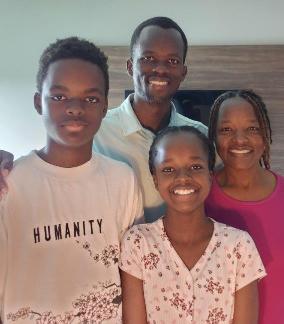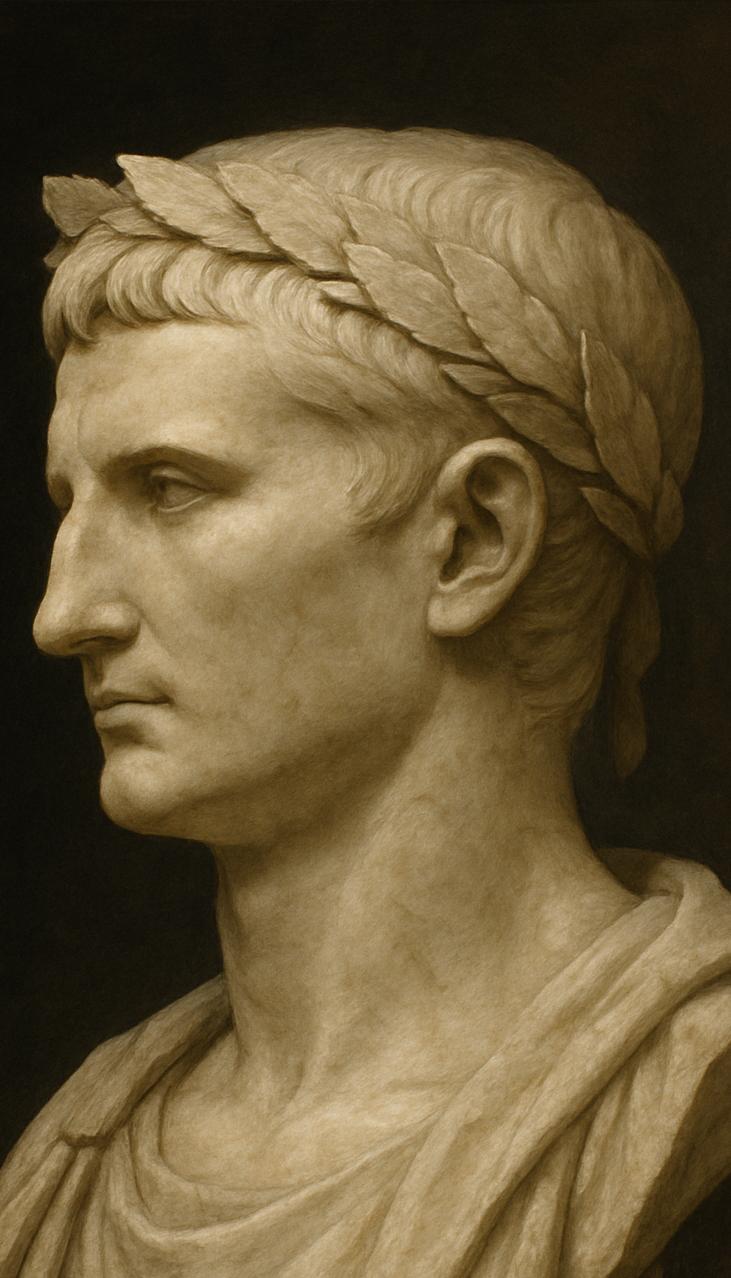






















On a crisp October morning in 1844, a humble potato farmer in New England walked away from his fields. Ripe for harvest, his potato crop lay hidden beneath the soil— ready, valuable, and demanding attention. But the farmer did not dig them up. He believed, with all his heart, that he would never need them.
October 22, 1844—the day thousands of Millerites awaited the return of Jesus Christ. Inspired by the preaching of William Miller, a Baptist farmer turned evangelist, believers across America had prepared for what they called “the Blessed Hope.” They had studied the prophecies of Daniel and Revelation, calculated the timeline, sold possessions, paid off debts, reconciled with estranged family, and—in the case of this potato farmer—left entire harvests in the ground.
It became known as the Great Disappointment when Christ did not return as expected.
The story of the potato farmer is often repeated in Adventist and broader Christian circles as an emblem of radical faith. Neither lazy nor foolish, he left his potatoes unharvested because he sincerely believed he was on the verge of eternity. His eyes were fixed on heaven, not on profit. Even after Jesus did not appear that fateful day, his abandoned field preached louder than words: “I believed.”
The story resonates today by reminding us how to truly live in anticipation of Christ’s return. Many of us say we believe Jesus is coming soon, but make no meaningful adjustments to our lives. The potato farmer’s conviction was inconvenient. It cost him something. But he chose eternal hope over earthly gain.
mained faithful, even through tears. That’s the kind of faith we need today—not one that withers in trial, but one that endures.
The Great Disappointment, though painful, became a refining fire for many. It tested motives, sifted the crowd, and clarified what genuine faith looked like. Some mocked the believers. Others abandoned their faith entirely. But a remnant took their sorrow to God. Returning to Scripture with humility, they realized their error was not in trusting God’s promised timing, but in misunderstanding what event had taken place. This is a lesson modern believers must take to heart. There’s danger in treating prophecy as a puzzle to solve rather than a promise to live by. When our hope is tied to dates and events rather than the character and presence of Christ, disappointment is inevitable. But when our eyes are fixed on Jesus—not just as an end-time deliverer, but as a daily companion—we can endure anything.
The potato farmer teaches us that real faith risks something. In an age when Christianity is often packaged as convenient or comfortable, his story shakes us awake. Are we willing to live such that people might think we’ve lost our minds? Are we willing to forgo temporary gain for eternal reward? To walk away from the field, so to speak, because we trust the promises of God more than the assurances of the world.
In Luke 18:8, Jesus asks, “When the Son of Man comes, will He find faith on the earth?” It’s not a rhetorical question; it’s a challenge. Will He find people who live like they truly expect Him? While not necessarily called to leave our fields or quit our jobs, we all are called to live with eternity in view, prioritizing people over possessions, holiness over comfort, obedience over approval. It means being misunderstood, maybe even mocked. But like the farmer, we live not for the harvest below but for the one above.

Interestingly, the story centers around a potato harvest. In John 4:35, Jesus told His disciples, “Lift up your eyes and look at the fields, for they are already white for harvest.” There is still a work to do—a spiritual harvest of souls to gather, of truth to proclaim, of hope to offer in a world aching with disappointment.
The potato farmer’s decision wasn’t about neglecting duty; it was about prioritizing the ultimate calling. Even today, his quiet conviction calls us to re-evaluate our lives. Are we so entangled in the cares of this world that we’d be unprepared if Christ came today? Or are we sowing seeds of faith, investing in what matters eternally?
It wasn’t passive waiting; it was active trust. He had read the Scriptures, listened to the message, and shaped his life accordingly. In a world filled with skeptics and scoffers, he dug his spiritual roots deep. Even when disappointed, he didn’t harvest his crop with bitterness. Accounts suggest he re-
The field still calls to us. It whispers of a faith that is not theoretical but lived. It reminds us that Jesus may delay, but He will not disappoint. And when He comes, may He find in us the spirit of that simple farmer—a man who believed enough to leave his potatoes in the ground, because his treasure was already in heaven.

by Max Hammonds
Adventist Frontier Missions (AFM) volunteer missionaries going to a country (not their own) on a specific assignment. They engage the community in some useful capacity, with the purpose to establish a Seventh-day Adventist group to grow into a church. They raise their own funds, depending on regular donors to support them.
Some countries are comfortable with Christians working in their country. Some do NOT welcome a Christian presence. Each missionary must carefully plan their approach.An experienced regional mentor assists them, but they must make their own way.
The following excerpts from update letters reveal the day-today life and work of one such missionary. Trained as a nurse, she has moved to a purposefully unnamed country to work in a remote area. Her pseudonym is Hadassah Song. The names of towns and villages are not disclosed.
May 2023: – “In the past I have asked for prayers for my language helper, Allie. She is moving to Japan to work next week. I would love to have the chance for a deeper conversation with her before she leaves. I am also praying about sending a Bible with her and Steps to Christ. My hope is that the seeds planted during the time we had together will eventually take root.
a strap off our heads. I’m also getting practice also cooking over an open fire.”
The next hurdle is obtaining permission from the elders to be in the local village. “A local Pastor came here with me last week. We [had] a meeting with the local leaders of the area [who] gave their permission for me to come stay here for periods of time and do health ministry and English teaching.
“The week after next, I’m going to the village of M_____ in the north to talk with the leaders there about me coming. Please keep that in your prayers. (The village of M______ is a remote people group she eventually wants to reach.) And please continue to lift up the village of M______ in your prayers that God would open the way for His light to shine in that area.”(The AFM must always remember that God is guiding and in charge.)
April 28, 2024: “ Thank you all so much for your prayers! I went to M______ today. They agreed to let me come stay in the village and teach English at the local school!”
As the language becomes easier, the AFM tries to make social connections –
March 2025: “Still working on learning both languages (local and national) while I stay in the capital waiting for a longterm visa to start spending time out in the village. I am getting to know my newest language teacher from the target people group . . . I’m really thankful for the way the friendship with Teacher P is growing and deepening. Her heart is open and I feel she is searching for truth. Please keep praying for her.

“The second language school that I am attending . . . is a Christian-based school. We are learning spiritual vocabulary as well. My understanding and speaking are both increasing, which is encouraging.At church last Sabbath I was able to understand a good amount of the sermon.”
Learning the language is the first hurdle asAFMs must work in the country’s language. The second hurdle is learning the way of life of those they will serve.
April 11, 2024: “I’m currently out in the village of P_____. I’ve been learning how to harvest wheat and barley and grind grains with a millstone. Every day they walk long distances to cut food for their animals, then carry it back up the mountain. Today we hiked almost two miles to cut firewood, tied it in bundles, and carried it back down to the house hung from
“[I have] the opportunity to take a class about the target people group’s religion . . . taught at their place of worship . . . to know more in depth about their religion before living among them.”
And works on a longterm visa. June 2025: “God connected me with someone . . . to help get a visa to work in a health facility in the target area in northwestern Brahmiland . . . giving me a legitimate, visible reason for living in that area.” (She is studying for a Masters in Nursing to make it easier to get a visa.) “I’m still studying 2-3 languages, trying to keep them separated in my mind. My friendship with Teacher P and Sister S is continuing to grow and . . . continuing to pray for them that they will be drawn to the truth.”
Learning two languages, getting a long-term visa, working on a master’s degree, making social connections, the AFM prayerfully depends on God and her supporters – an early church worker in this part of the world.
Follow Hadassah Song at http://hadassah-song.epistle.org

by Daniel Reynolds, Chris Small
History.A record of events. A gripping or sometimes boring retelling of events and stories. As we read the retellings of the past, often it is noted that history repeats itself. The historical pendulum, as it were, swings from one side to the other creating political and ideological whiplashes from one extreme just to swing the opposite direction towards another extreme. At times these clashes react violently one to another, creating wars over land, race, and/or beliefs. Whether one loves or hates history, what has happened in the past shapes who we are, where we came from, and to an extent where we are headed. A well known statement by Ellen White was penned "we have nothing to fear for the future, except as we shall forget the way the Lord has led us, and His teaching in our past history." (Life Sketches, p. 196)
The month of August was named after a famous person in history: Caesar Augustus. The name Augustus means “venerable” or "worthy of reverence.” He was the handpicked successor to another famous Roman ruler named Julius Caesar, and was Julius’ nephew who became his adopted son. Augustus’ birth was hailed as “good news” (or gospel, Grk. euangelion), that is, the arrival of a new ruler and a new regime of “salvation” (Grk. soteria) that has brought peace, order, and “benefit” (Grk. euergesia, literally “doing of goodness”) to the known world.
sent to us and our descendants as savior, has put an end to war and has set all things in order.”
The Roman senate gave Julius Caesar the name divus Iulius (“the divine Julius”), giving his adopted son Augustus the name divi filius (“son of the god”), a title that he embraced wholeheartedly throughout his life. Emperor worship became so commonplace throughout the whole Roman empire, Augustus was venerated as a god with coins bearing his image and inscribed with the phrase “Divine Caesar and Son of God.” Augustus was described by an Egyptian author as a star “shining with brilliance of the Great Heavenly Savior,” and much of the Roman states worshiped him as a savior as the Roman creed stated, “Caesar is Lord.”
Augustus was infamous for his iron fisted rule as a dictator, one who exploited the weaknesses of the Roman senate to rise to and maintain power. He ensured that the army and people were loyal to him instead of the state, and he engaged in many foreign affairs that involved conquering other lands to bolster his power. Augustus' reign has also been portrayed in literature of that era as Pax Romana, or peace throughout the empire. While under Augustus Caesar there was relative peace established compared to previous times, roads were built, and a common, stable culture was established so that the gospel of Jesus Christ could easily spread throughout the Roman Empire’s 50,000 miles of newly built roads.

A stone inscription found in Priene, in modern-day Turkey, referring to Caesar Augustus says: “the birthday of [Augustus] has been for the whole world the beginning of the gospel [euangelion] concerning him.” (Priene 150.40-41) In fact, Augustus’ birthday was declared the first day of each new calendar year, with a government building placard from 6 B.C. stating: “All the cities unanimously adopt the birthday of the divine Caesar as the new beginning of the year . . . Whereas the Providence which has regulated our whole existence . . . has brought our life to the climax of perfection in giving to us (the emperor) Augustus . . .who being

It is not difficult to make significant comparisons of Augustus’ birth and life to that of the true Savior of the world, Jesus Christ. Precisely the same vocabulary is used by the earliest disciples of Jesus to describe the importance of Jesus of Nazareth and the story of his life and message, his execution at the hands of the Jewish and Roman authorities, and his resurrection from the dead into a role of cosmic authority.
His name is even mentioned in the Bible in Luke 2:1 “In those days Caesar Augustus issued a decree that a census should be taken of the entire Roman world.” It is in this backdrop that Jesus was born, the Christ child. Because of the precise timing that Caesar Augustus decreed all individuals must return to the towns or cities of their ancestors for an empire-wide census, Joseph and Mary traveled to Bethlehem within days before Jesus’ birth. As a result, Augustus decreed the census that was the human mechanism God used to fulfill the prophecy regarding the place of the Messiah’s birth: “But you, Bethlehem Ephrathah,
though you are small among the clans of Judah, out of you will come for me one who will be ruler over Israel, whose origins are from of old, from ancient times.” (Micah 5:2)
When EmperorAugustus travelled, it is recorded that he often had large entourages with choirs to herald his coming. Similarly, with Jesus’ birth, a choir of heavenly angels in Luke 2:11 sang of Jesus’ birth not to the principalities of that time but to lowly shepherds who were joyfully informed that “Today in the town of David a Savior has been born to you; he is Christ, the Lord.” What great joy! The heavenly choir was not singing Caesar’s praise, but of the miraculous birth of Christ the Lord!
The opulence with which the emperor of Rome was born was starkly contrasted with the humble birth of Jesus, born in a livestock stable wrapped not in royal purple but in swaddling cloths. He is the true “bright morning star” (Revelation 22:16) and Son of the Most High (Luke 1:32). It was not Augustus who was savior and lord, as much as he craved to be called these titles.

Not only was Jesus’ birth monumental in history, Luke describes Jesus’ childhood as full of "extraordinary wisdom and obedient relationship with his heavenly Father.” (Luke 2:41-52) This parallels “special child” narratives in contemporary biographies of famous individuals like Augustus, although it is highly doubtful that Caesar Augustus was ever described in such purity of character as was Jesus. “[Jesus’] mind was active and penetrating, with a thoughtfulness and wisdom beyond His years. Yet His character was beautiful in its symmetry…His willing hands were ever ready to serve others. He manifested a patience that nothing could disturb, and a truthfulness that would never sacrifice integrity. In principle firm as a rock, His life revealed the grace of unselfish courtesy.” (Desire of Ages, pp. 68-69)
The coins bearing Augustus’ inscription “Divine Caesar and Son of God” may have been the very same coins Jesus held in Mark 12:17 when he was answering a question put to him about taxes: "Render to Caesar the things that are Caesar's, and to God the things that are God's" thus clarifying that obedience to the laws of the land are important so long as they don’t conflict with biblical truths. Even as Jesus’ ministry commenced, the “good news” or the “gospel” spread like wildfire. Mark 1:14-15 reads “... Jesus went into Galilee, proclaiming the good news of God. ‘The time has come,’ he said. ‘The kingdom of God has come near. Repent and believe the good news!’” The gospel brings us good news because we need it. Jesus once said that He came so we might have a full and mean-
ingful life – a life filled with purpose. Why is good news needed? It's because on our own we fall into sin, and sin separates us from God. The Bible says we all, like sheep, have gone astray. The good news is Jesus bridges the gap between us and God.
In keeping with the Roman religious creed, emperor worship became a patriotic duty. The New Testament refutes Roman religion at every turn, proclaiming Jesus, not Caesar, as the Son of God and Lord (Mark 1:1; 1 Thessalonians 1:1). Most of the Roman empire was required to worship Caesar as god, but because of their longstanding history of monotheism, Jews were granted an exemption from the required emperor worship. As long as Christianity was considered a sub-sect of Judaism, Christians were also exempt from being forced to worship the Roman emperor. But as Christianity began to spread rapidly after the disciples preached the gospel to the Gentiles, Jews began to denounce Christians and put them out of the synagogues, thus resulting in the Christians no longer being allowed the same exception that Jews were afforded.

The Roman government was the instrument of Christian persecution in much of the New Testament. We see the first instance of this in the charges brought against Jesus Himself (Luke 23:1–2). This happened again to Paul and Silas in Thessalonica, where some unbelieving Jews stirred up the crowd by saying, “They are all defying Caesar’s decrees, saying that there is another king, one called Jesus” (Acts 17:7).
Even the famous Josephus, a Roman-Jewish historian of that era, noted “About this time there lived Jesus, a wise man, if indeed one ought to call him a man. For he was one who performed surprising deeds and was a teacher of such people as accept the truth gladly. He won over many Jews and many of the Greeks. He was the Christ…And the tribe of the Christians, so called after him, has still to this day not disappeared.” (Antiquities 18.3) While it is unknown if there is anyone who still worships CaesarAugustus as god and savior, it is a known fact that there are billions today who worship the true God of the universe and His Son, Jesus Christ.
Augustus Caesar died inAD 14 during Jesus’ childhood, making his namesake month of August the only prominent reminder of his name in modern-day linguistics. Augustus was consumed with exalting himself in his vast empire, but, in reality, he was setting the scene for his ultimate replacement in Christ Jesus. WhileAugustus and his successors thought they were building their own empires, they were simply unwitting and often unwilling performers in the construction of the kingdom of God.

Albert Groot (a.k.a. Pawpaw) selected a beautiful slice of homemade raisin bread, then carried his plate from the end of the potluck line to the third table back on the right. His two grandsons, Mark and Matthew, waited patiently for him to seat himself.
Pawpaw folded his hands over his plate and lowered his head to touch his hands. Then he looked up. “Mark, would you ask the Lord to bless our food?”
“Sure, Pawpaw.” Mark prayed quietly, but audibly above the laughter of the children at the back tables.
“Your man didn’t stay for potluck?” Matthew asked, halting his fork on the way to his mouth. “I watched you ask to serve him in the foot washing. Do you think he was one of our homeless people?” Then the fork continued its journey.
“Probably.” Pawpaw stared into the distance over his hands that were still folded. “His socks had holes in the heels and his toenails were a mess.” Pawpaw sighed and picked up his fork. “During the foot washing service, he was very talkative about his difficulties with life – and with the church. But when I prayed for him, he began to tear up and became pensively quiet. When we stood up, he suddenly turned and walked away to the exit.”
“We understand, Pawpaw.” Mark attempted a weak smile. “You probably didn’t have anything to be forgiven for anyway.”
Pawpaw shook his head as he chased run-away tomatoes in his salad. “You have no idea the thoughts that pass between these old ears that must be repented of.” He paused and chuckled softly. “You know that pithy remark from Paul in 1 Corinthians 11 about partaking of communion unworthily?”
“Yeah, sounded pretty serious to me.” Matthew reached for his water glass. “Paul described some of that behavior in earlier verses: stirring up divisions in the church, pigging out while ignoring others who are hungry, being drunk at communion.”
“I was thinking of the more subtle unpreparedness for communion,” Pawpaw buttered his bread slowly.
“Sometimes I think younger people are more prepared than some older ones are – those who nurture decades old slights and grievances and cling to unfounded prejudices for years. Jesus wants us to not only clear the air of broken bonds between family members, He wants us to do like David and ask the Lord to examine our hearts for whatever needs to be set right between us and Him.”
“That night, Jesus was preparing His disciples for what was about to happen,” Mark held a taco in his hand, but stared at his plate, “I keep thinking Jesus wants to prepare us for what’s coming in our lives.” He looked up. “What’s He preparing us for, Pawpaw?”

“Like Jesus said, ‘This is the new covenant in My blood.’ He wants to prepare us to establish covenant with Him. In the covenant, He promises to continually forgive us and to grow us. He wants us to promise to abide in Him and give Him permission to allow His Holy Spirit to grow us as we participate in service to others. He wants us to cling so closely to Him that we begin to think and to act like He does – for the same reason He does, love.
“We talked last night about preparing for today.” Mark gestured with his fork. “You know, confession and forgiveness? And becoming closer to each other, strengthening each other? But we didn’t get to do that.”
“Oh?” Pawpaw’s eyebrows shot up in mock surprise. “You boys didn’t do that with each other? Was there nothing to forgive?”
“You know what I mean, Pawpaw.” Mark stirred crunched crackers into his soup. “We thought we were going to share this time with you.”
“I know, boys.” Then Pawpaw pointed to his daughter still in the potluck line with a visitor from an obviously different ethnic background. “But sometimes, like your mother, you see someone who needs to be ministered to – and the usual things we do are put on hold. I’m sorry.”
“It's what the word ‘communion’ means – to mutually participate, strengthening each other in fellowship and ministry. In the communion service, He is asking us to covenant with Him to do this.” Pawpaw looked from one grandson to the other. “Yes, I agree. Communion is very serious business.
“We’ve already agreed to accept His sacrifice for us when we are baptized – cleansed all over. But we walk in a sinful, dirty world. And on occasion we need our feet cleansed and our hearts recommitted to the covenant He wants to make with each of us personally.”
“Is that the sermon for today, Pawpaw?” Mark asked. Pawpaw laughed. “I guess it is.” He paused. “I think I needed that.And so did the man whom I served today.”
“You told him, Pawpaw,” Mark said. “You just didn’t use words.”

Ispent most of the summer before my college senior year in Greece, trying to learn advanced Koine, that is, common Greek of the New Testament period (1st century AD). Studying with Adventist Colleges Abroad, I was the only student that summer from Andrews University, while some came from Union College and Walla Walla College.
My flight arrived in Athens first. Abit later another Chris arrived (spelled “Kris”). A day earlier than the others, armed with two maps, we set out to find theAcropolis and Mars’ Hill, the Areopagus. The subway being overhauled that year, we walked everywhere. It didn’t matter: we were college guys in our early twenties.
Toward twilight, we stood on the same rock where Paul the Apostle proclaimed that the Creator was the Athenians’ “unknown God” who proved Himself by raising Jesus from the dead. Some scoffed, others believed, like Dionysius and Damaris. As for Chris and Kris, we were two religion majors awed to be standing “maybe exactly” where these early Christians talked about their faith in Jesus. The centuries slipped away as we gazed on Athens, lights beginning to show, just as those Christians would have seen lamps and torches lit within the city.
On the outskirts of the city, we went down to the beach most mornings and evenings. Several times we tried to engage local loungers in conversation, but it was slow going. We were steeped in truly ancient, archaic words, while they spoke modern phrases we didn’t recognize. One day, we showed a middle-aged man the Koine Greek New Testaments we were studying and trying to translate. Finally we could connect on something! However, the man made it clear to us that he—and most Greek Orthodox Christians—used a more contemporary version of the Greek Scriptures.
Just around the corner from our summer lodging, stood a tiny Greek Orthodox chapel, filled with candles. It was small and low; I had to duck to enter the doorway, stepping down at the same time. The chapel smelled like wax, smoke, and the Aegean Sea, the beach being only a block beyond. On the chapel walls hung Greek icons of various Bible characters, again like stepping back in time.
Ablock or two in the other direction stood another Greek Orthodox structure, this one larger and somewhat more up-to-date (though that’s somewhat relative). Several of us students agreed that we would come back on the weekend, hoping to join the congregation for their services. (We managed to read that part of the sign.)
On Sabbath morning we went to a Greek Adventist church in Athens. We could not understand everything in the sermon, but the flow of the service felt familiar and we enjoyed following along with the scriptures in our Greek Bibles.

The next day, joined by other students and our professor, we walked around Athens, the past always slipping up on us. From the way Greek friends greeted each other enthusiastically (was that a “holy kiss” or two?), to the ancient churches and the older agora columns, to the smell of fresh bread, baklava, or spanakopita, we kept thinking, “This is what it must have been like!”
Actually, Greek grammar was little changed over two thousand years. That was the good news. The bad news was that vocabulary was almost completely different. Initially, I had an easier time puzzling out signs and understanding some spoken words, because my first year teacher at Andrews University was Dr. Elly Economu, a native Greek speaker who taught us contemporary forms and pronunciation.
Then, on Sunday morning, we went back to the Greek Orthodox church near our lodgings. This was very different. We could not introduce ourselves as fellow Adventists from America, but being fellow Christians was enough. The liturgy was quite different and we had no idea what was coming next, but we joined in with everything we could understand, standing or kneeling when everyone else did. And again, our Greek Bibles saved the day. Even if little or nothing else connected us, reading the scriptures did. From diverse cultures, countries, backgrounds, and Christian traditions, in those moments of reading from the Gospels, all our differences briefly slipped away. We were connected by the words and acts of Jesus and the faithful witness of those early Christians who carefully recorded and preserved His story.
I didn’t just learn more about Koine in Greece, I also discovered the truth of what Paul wrote (Galatians 3:26-28) nearly two thousand years ago: “You are all children of God through faith in Christ Jesus, [if] you were baptized into Christ [you] have put on Christ. There is neither Jew nor Greek, there is neither slave nor free, there is neither male nor female, for you are all ONE in Christ Jesus.”

Everyone has cancer cells growing in their bodies, cells that are malformed and whose growth pattern is out of control. The immune system is designed to capture and destroy “foreign” cells that invade the body (bacteria, etc.) and “foreign” cells grown in the body. In young people this system works exceedingly well for the vast majority of people.
Cancer is generally considered a disease of older people. Eighty-eight percent of all cancers in the United States occur in people over 50 years old. But in the last thirty years medical science has become increasingly aware that clinical cancer is being diagnosed in young people – those in their 20’s, 30’s, and 40’s. This increased incidence of earlyonset cancer is occurring in multiple countries. A recent article in the British Medical Journal – Oncology reported a 79% global increase in early-onset (earlier than age 50) cancer diagnoses from 1990-2019 (30 years) and a 28% global increase in early-onset cancer deaths during the same period.
These increases are not limited to just one cancer. Currently, at least seventeen different cancers are included in these statistics. They include lung cancer, breast cancer, and bowel cancers (stomach, pancreas, colon, and rectum.) While 4 of every 10 American adults will be diagnosed with cancer at some point in their lifetime, 1 in 17 females and 1 in 29 males will receive this news before their 50th birthday.
The good news is that because of the improved detection and treatment methods for cancer and the marked decrease in smoking, far fewer people are dying of cancer. Therefore, the increased incidence of cancer in this young cohort could result from the heightened vigilance for cancer in this age group and the increased accuracy with which these cancers can be identified. But this increase in seeking out early cancers does not account for the rapidly increased frequency with which they are found.
ercise patterns. Also, the poor diet (typical Western diet) adversely changes the gut microbiome (the kinds of bacteria that live in the gut and help in digestion) and is implicated in the increased incidence of bowel cancers.
New factors are also suspected in this rise in early-onset cancers. 1) The effects of the lifestyle choices mentioned above can turn on or turn off switches in the genes of DNA, changes that can make cells more likely to become cancerous (epigenetics). 2) The presence of microplastic particles which break off the plethora of plastics in our environment: plastic bottles, bags, boxes, linings and cartons and the many chemicals in lip and skin treatments, cosmetics, carpets, upholstery material and furnishings, and in various spray products – many of these are suspected of being carcinogens, entering our food, water, and air.
In the older-aged group, the aging process causes a decreasing ability of the immune system to combat and destroy these “foreign” cancer cells just as the factors that cause a rise in these “foreign” cells is increasing. In the very young and even in fetuses, the exposure to microplastic particles and environmental pollutants may start before birth, affecting not only the fetus but causing changes in the father and mother that can be passed to their progeny.
Some of these potential causes of increased early-onset cancers are only suspected at present. But as a result of the increase, the recommendations for scanning for cancer has changed. The recommended starting date for the first screening colonoscopy is 45 years, instead of 50 years of age. And the recommended starting date for the first screening mammogram is age 40, instead of age 45, and at age 30-35 for those at higher risk for breast cancer.

In reviewing the above information, besides undergoing the screen procedures, the most effective measures available to decrease the risk of an early-onset cancer diagnosis are: Don’t smoke, sleep 7-8 hours per night, control sun exposure, do cardiovascular exercise 150 minutes per week, avoid plastic containers (especially when exposed to high heat), maintain an ideal weight, eat a well-rounded diet of whole grains, legumes, fruits, vegetables, and (judicious amounts of) seeds and nuts, avoid empty sugar/fat calories, avoid fatty meat (marbled), red meat and ultra-processed meat, and if meat is eaten at all – eat only lean poultry and deep sea fish (low in mercury).
Many of the risk factors for cancer are already known: excessive sun exposure, obesity, diabetes, smoking, poor diet (high fat, high sugar, red meat and ultra-processed meat products, low fiber, low fresh produce, high alcohol), poor sleep habits (excessive work and play), low ex-
Currently, there are NO vaccines against cancer. Consider the age and the environment in which we live and make good lifestyle choices to avoid the known factors that increase the risk of early-onset cancer. This is not a disease of the aged. Early-onset cancer affects the young and the very young. Make your considered choices today.

1 eggplant, large (dice scraps) Yellow Pepper Sauce for Ratatouille:
1 C diced green zucchini
1 C diced yellow zucchini
½ C onion
2 tsp minced garlic
1 medium Roma tomato
2 chopped medium yellow bell peppers
1 Tbsp fresh lemon juice
2 Tbsp raspberry vinegar
¼ C honey
2 Tbsp water pinch of salt
2 Tbsp cornstarch
scraps from eggplant fresh basil oil for pan
Prep time: 15 min
Cook time: 20 min
Servings per recipe:5
Wash and dry eggplant. Remove top and bottom ends and discard. Slice eggplant longways into even slabs that are ½ inch thick. Reserve the 5 best center slices and dice the remaining slices including the outermost skin pieces, set aside. Brush the center slices with a little oil and season with salt and pepper. Grill on a medium hot grill without moving until grill marks appear, then flip to the other side. Continue cooking until softened through, about 6 minutes total. Remove from heat and set aside to cool slightly.

For the filling, sauté the reserved diced eggplant, green and yellow zucchini, onion, and garlic in a little olive oil until starting to soften, about 3 minutes. Add the tomato and salt and bring to a simmer. Cover and continue cooking until very soft, about 10 minutes.



Waiting for the Son-Rise
Brightly shown the sun at noon, then suddenly was gone.
A torn and tortured, angry sky in fear held sway.
Only faintly shown the light with penetration small.
Ignorant and hateful clouds saw end of day.
Darkness walked upon the deep; the land was wrapped in black.
Light and life entrusted to some fishing barks.
Lonesome little lamps upon the bosom of the sea; Man’s attempt to penetrate the awesome dark.
Now the wondering world awaits the rising of the Son, Watches while the breaking dawn rolls back the night,
Earnest for the Morning Star that will not be denied, Darkness to be conquered by Eternal Light..

Our family focus this month features Daveline and Doris Nyakundi who joined the Arden Seventh-day Adventist (SDA) church in December 2024.
Daveline and Doris were born and raised in Kenya, Africa. He has three brothers and one sister; she, two brothers and eight sisters.
Daveline attended elementary and high school in Western Kenya, receiving his BS in Nursing (minor in Counseling/Psychology – University of Eastern Africa –Baraton) and his Master’s Degree in Clinical Trials (University of London).
Doris attended elementary school in Kenya, graduating from high school in Nairobi. She received her BS in Information Sciences (Moi University) and her Master’s Degree in Medical Statistics (University of Nairobi).
Daveline works for Keller-Williams as a Licensed Realtor. He also works for a Kisumu, Kenya company, managing infectious diseases clinical trials and scientific research (4 years) and a Nairobi company, ten years. Doris worked for Family Health International (FHI 360) as project data manager in research (2½ years). She is not working but actively seeking a new position.
Daveline and Doris met during his internship in Western Kenya through mutual friends. They dated three years, have been married for sixteen years, and have two children, Phillip, 14 and Darla, 12.
Moving to Wilmington, North Carolina in 2022,they investigated where to relocate for the best schools. The Lord impressed them to relocate to Hendersonville, North Carolina in August 2024, “just in time for Hurricane Helene.” Both children attend Captain Gilmer School.
Their hobbies include vegetable gardening, hiking, and participating in community work. Daveline is passionate about tennis and is learning pickleball and golf.
Daveline has traveled through Africa and ten other countries on business trips, as well as training in Vienna and London. Doris has traveled to several African countries for work. The family often vacationed at the Diani Beaches on Kenya’s south coast.

Doris was raised Adventist and baptized in high school. Daveline lived with his Catholic grandmother from kindergarten through eighth grade. His mother (not in that home) became a Seventh-day Adventist. The Lord opened the way for Daveline to attend an Adventist-supported government high school. He attended baptismal classes and was baptized and became a deacon while a junior in high school. One year after their marriage, he was ordained as an elder in their Kisumu church.
While investigating schools in western North Carolina, they attended both Mt. Pisgah and Fletcher churches. In July 2024 they visited the Arden Church, being warmly welcomed and well received by everyone and by Pastor Eric. After church, they stayed for potluck at the “Zinke River,” which they enjoyed immensely – the lunch and talking with church members. Needing a rental house, Sarah McCord found it for them!
Pastor Eric surprised them with a note, expressing his appreciation for their visit and welcoming them to the Arden Church, if they decided to move. This gesture warmed their hearts. A month later, they relocated to Hendersonville, happily joining theArden church – where they attend the Down Under Sabbath School Class. We welcome the Nyakundi family to the Arden Church family!
| www.ArdenAdventist.org
Arden Seventh-day Adventist Church Is a Safe Place to Grow.
Our Purpose is, by God’s Grace, to reflect His character in our community, to demonstrate a quality of life that will attract all to be reconciled to Jesus Christ, and to encourage people to become His loving, maturing disciples.
Grace Notes Editorial Staff:
Max Hammonds......................................Editor
Chris Small.........................................Columnist
Jean Davey.........................................Columnist
Max Hammonds..........Reporter & Columnist
Pen Braister-Sturgis.............................Reporter
Sara McCord.........................................Reporter
Dan Reynolds.......................................Reporter
Arizona McCord.......Reporter & Proofreader
Chris Small .............................Special Graphics
Jim & Carolyn Sullenberger........Proofreaders
Nolan Darnell................Mailing Management
Shirley Wallstrom..........Circulation Manager
Whitney Barron.........................Layout Design
Comments, suggestions and praises are always welcome. Please email or contact the church office.
Services each Saturday morning: Sabbath School Bible Study, 9:30 a.m. Worship Service, 10:45 a.m.
Location: 35 Airport Road, Arden, NC 28704 Located on Highway 280, (Airport Road), 1.5 miles east of I-26 exit 40, and a quarter mile west of Highway 25.
Church Office:
Office Manager: Cindy Cottrell
Office Secretary: Summer Cronin Telephone: (828) 684-6700
Email: office@ardenadventist.org
Website: www.ardenadventist.com
Office Hours: Mon., Wed., Thurs.,9 a.m. to 3 p.m.
Arden Adventist Pastoral Staff: Senior Pastor: Eric Bates, D. Min. Email: ebates@carolinasda.org
Associate/Youth Pastor: Rich Maskelony, M .Div. Email: rmaskelony@carolinasda.org
Grace Notes is published monthly by the Arden Seventh-day Adventist Church. Subscription is free by calling or emailing the office. †Do you have questions about what Adventists believe? Would you like to become a member of the Seventh-day Adventist Church? Would you like to study the Bible? You are invited to attend a Pastor’s Bible Study Class. Please call for location and time. All are always welcome.
† Disclaimer—The contents of Grace Notes, such as text, graphics, images, and other material contained in this magazine of the Arden Seventh-day Adventist Church are for informational purposes only. It is not intended to be a substitute for professional medical advice, diagnosis, or treatment. Always seek the advice of a qualified healthcare provider, who is knowledgeable and experienced in the use of specific medical or Lifestyle Medicine interventions, or about questions you may have regarding a medical condition. Never disregard professional medical advice, or delay in seeking it, because of information published in this magazine. Neither Grace Notes nor the Arden Seventh-day Adventist Church recommendorendorseanyspecifictests,products,procedures, opinions, or other information that may be mentioned in published articles. Reliance on any information provided is solelyatyourownrisk.Ifyouhaveamedicalemergency,call your healthcare provider or 911 immediately.


Arden Seventh-day Adventist Church
If you no longer wish to receive Grace Notes, or if your address has changed, please contact us.



Wherever grace is welcomed and received, joy follows, just as daylight follows dawn. And so we can read backwards from so many grayed-out, joyless souls to learn how few have heard and loved and lived the gospel. All fearful, anxious following of Jesus—all dim preoccupation with the things we've done or left undone—reveals that we are still in darkness, wrestling with the shadows Jesus rose to vanquish. “In Him was life, and the life was the light of men. The light shines in the darkness, and the darkness has not overcome it.” (John 1:4-5).
So hear the gospel chorus in the songbirds’ pre-dawn trilling, bringing light to weary souls— like yours:

“Arise, shine; for your light has come, and the glory of the Lord has risen upon you. For behold, darkness shall cover the earth, and thick darkness the peoples; but the Lord will arise upon you, and His glory will be seen upon you” (Isaiah 60:1-2).
The Light of all the world invites you: be done with anxious, midnight brooding. The day that dawns is meant to be abundant and eternal, the endless morning of the Son. And stay in grace.
-Bill Knott
Each Crypto-Family is a list of related words in code. Each family has its own code. When you have identified a word, use the known letters to help decode the other words in the Family.
All in the Family
Source: Luke 3:23-38
My Shepherd Abraham, Isaac, and Jacob
Source: Psalm 23
Source: Genesis 17, 26, 32
Clue: D=T
Clue: U=N
Clue: T=L
